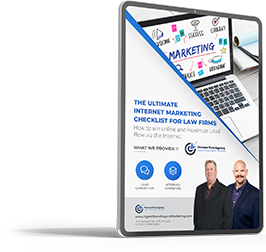I. Introduction
In today’s digitally-driven world, effective online marketing is no longer optional for insurance agents—it’s essential. With the right strategies, agents can significantly expand their reach, engage more clients, and ultimately drive business growth. However, the path to digital marketing success is fraught with challenges and common pitfalls. This article aims to identify these pitfalls, provide actionable solutions, and underscore the importance of targeting, measuring ROI, and refining strategies based on analytics.
Key Takeaways
- Targeted Marketing is Crucial:
- Broad, untargeted campaigns often result in wasted resources.
- Use data analytics to identify and understand your target demographics.
- Implement personalized marketing strategies tailored to your audience segments.
- Consistency Across Platforms Builds Trust:
- Maintain a cohesive brand image across all digital platforms.
- Use tools to schedule and manage social media posts for regular updates.
- Periodically audit your online presence to ensure uniform branding.
- SEO is Essential for Visibility:
- Avoid common SEO mistakes like keyword stuffing and neglecting local SEO.
- Implement a comprehensive SEO strategy with both on-page and off-page elements.
- Use SEO tools to track and adjust your performance.
- Leverage Social Media Effectively:
- Use social media platforms to connect with and engage your audience.
- Create a content calendar for consistent and relevant social media updates.
- Engage with followers by responding to comments and messages promptly.
- Measure and Optimize Your ROI:
- Set clear goals and KPIs to track your marketing performance.
- Use analytics tools to gather data and gain insights into your campaigns.
- Regularly review and adjust your strategies based on performance metrics.
- Understand and Target Your Audience:
- Develop buyer personas to tailor your marketing messages.
- Segment your audience and create personalized marketing campaigns.
- Use personalized offers to increase engagement and conversions.
- Regularly Review and Adapt Your Strategies:
- Conduct regular marketing audits to evaluate your performance.
- Stay updated with the latest digital marketing trends.
- Be willing to experiment and adapt your strategies for better results.
- Build a Professional and User-Friendly Website:
- Ensure your website has clear navigation and compelling content.
- Optimize your website for mobile users.
- Use strong call-to-actions to encourage visitor engagement.
- Utilize Content and Email Marketing:
- Provide valuable content through blog posts, ebooks, videos, and infographics.
- Segment your email list and personalize your email campaigns.
- Track and optimize your email marketing performance.
- Embrace Video Marketing:
- Create engaging and informative video content.
- Use storytelling to make your videos relatable.
- Optimize videos for SEO to increase visibility.
By avoiding these common pitfalls and implementing effective strategies, insurance agents can enhance their digital marketing efforts, engage more clients, and drive business growth.
II. Common Mistakes in Digital Marketing for Insurance Agents
Lack of Targeted Marketing
Explanation:
One of the most significant mistakes insurance agents make is failing to target their marketing efforts effectively. Broad, untargeted marketing campaigns may seem appealing, but they often result in wasted resources and minimal returns. Understanding your target demographics is crucial to ensure your marketing efforts reach the right audience.
Solution:
To avoid this pitfall, leverage data analytics to identify your target market. Use tools like Google Analytics to gather insights into your audience’s behavior, preferences, and demographics. Once you have a clear understanding, implement personalized marketing strategies that resonate with your specific audience segments. For instance, if your data shows a significant portion of your clients are young families, tailor your messaging to address their unique insurance needs.
Inconsistent Online Presence
Explanation:
A consistent online presence is vital for building trust and brand recognition. However, many insurance agents neglect this aspect, resulting in a fragmented and inconsistent brand image across various platforms. This inconsistency can confuse potential clients and diminish your credibility.
Solution:
Maintain consistency across all digital platforms by developing a cohesive brand strategy. This includes uniform branding elements such as logos, color schemes, and messaging. Use tools like Hootsuite or Buffer to schedule and manage your social media posts, ensuring regular and consistent updates. Additionally, audit your online presence periodically to ensure all platforms reflect the same brand image.
Neglecting SEO Best Practices
Explanation:
Search Engine Optimization (SEO) is crucial for driving organic traffic to your website. Despite its importance, many insurance agents either ignore SEO or make common mistakes like keyword stuffing or neglecting local SEO, which can hinder their online visibility.
Solution:
Implement a comprehensive SEO strategy that includes both on-page and off-page elements. Focus on keyword research to identify terms your potential clients are searching for, and incorporate these keywords naturally into your content. Don’t forget local SEO—ensure your business is listed on Google My Business, and optimize your content for local search terms. Tools like Moz and SEMrush can help you track your SEO performance and make necessary adjustments.
Overlooking the Power of Social Media
Explanation:
Social media is a powerful tool for reaching and engaging with clients. However, many insurance agents fail to utilize social media effectively, either by not posting regularly or by posting irrelevant content that fails to engage their audience.
Solution:
Leverage social media platforms to connect with your audience by sharing valuable and relevant content. Create a content calendar to plan your posts in advance and ensure regular updates. Engage with your followers by responding to comments and messages promptly. Use platforms like Facebook, LinkedIn, and Instagram to showcase client testimonials, share industry news, and offer helpful insurance tips.
Failure to Measure ROI
Explanation:
Measuring the return on investment (ROI) of your marketing efforts is essential to understand what works and what doesn’t. Unfortunately, many insurance agents either don’t track their marketing performance or don’t know how to interpret the data, leading to ineffective marketing strategies.
Solution:
Set clear goals and key performance indicators (KPIs) for your marketing campaigns. Use tools like Google Analytics, HubSpot, and other marketing automation platforms to track your performance. Regularly review the data to identify trends and make informed decisions. For instance, if a particular campaign isn’t performing well, analyze the data to understand why and make necessary adjustments.
III. Importance of Targeting in Digital Marketing
Understanding Your Audience
Understanding your audience is the foundation of any successful marketing strategy. By knowing who your clients are, what they need, and how they behave, you can tailor your marketing efforts to meet their specific needs.
Creating Buyer Personas
Buyer personas are detailed profiles of your ideal clients. They include demographic information, behaviors, and motivations. Creating accurate buyer personas helps you tailor your marketing messages to resonate with your target audience.
Steps to Create Effective Buyer Personas:
- Research: Gather data from your existing client base through surveys, interviews, and analytics.
- Identify Common Traits: Look for common characteristics and behaviors among your clients.
- Create Profiles: Develop detailed profiles that include demographic information, challenges, and goals.
- Use Personas: Apply these personas to guide your marketing strategies and content creation.
Personalized Marketing Strategies
Personalized marketing involves tailoring your messages and offers to meet the specific needs of your clients. This approach not only improves engagement but also increases conversions.
Techniques for Implementing Personalized Strategies:
- Segment Your Audience: Divide your audience into segments based on characteristics like age, location, and interests.
- Tailor Your Messages: Create customized messages for each segment.
- Use Personalized Offers: Offer personalized discounts and promotions to different segments.
IV. Measuring ROI in Digital Marketing
Setting Clear Goals and KPIs
Before you can measure your ROI, you need to set clear marketing objectives and identify key performance indicators (KPIs). These goals should be specific, measurable, attainable, relevant, and time-bound (SMART).
Examples of KPIs for Insurance Agents:
- Website Traffic: The number of visitors to your website.
- Conversion Rate: The percentage of visitors who become clients.
- Cost Per Lead: The amount spent to acquire a new lead.
- Client Retention Rate: The percentage of clients who stay with you over time.
Tools for Measuring ROI
Several tools can help you track and measure the ROI of your digital marketing efforts:
- Google Analytics: Provides insights into website traffic, user behavior, and conversion rates.
- HubSpot: Offers comprehensive marketing automation and analytics tools.
- SEMrush: Helps track SEO performance and keyword rankings.
Interpreting Data and Making Adjustments
Collecting data is just the first step; you need to interpret it correctly to make informed decisions. Regularly review your performance metrics to identify what’s working and what isn’t.
Techniques for Analyzing Marketing Data:
- Trend Analysis: Look for trends over time to understand the impact of your marketing efforts.
- Comparative Analysis: Compare the performance of different campaigns to identify the most effective strategies.
- Adjustment and Optimization: Use the insights gained from your analysis to refine and improve your marketing strategies.
V. Refining Strategies Based on Analytics
Regular Review and Analysis
To stay ahead in the competitive insurance market, it’s crucial to regularly review and analyze your marketing performance. This helps you understand the effectiveness of your strategies and make necessary adjustments.
How to Conduct Effective Marketing Audits:
- Collect Data: Gather data from all your marketing channels.
- Analyze Performance: Evaluate the performance of each channel and campaign.
- Identify Strengths and Weaknesses: Determine what’s working well and what needs improvement.
- Make Adjustments: Implement changes to optimize your marketing efforts.
Adapting to Changing Trends
The digital marketing landscape is constantly evolving, and staying updated with the latest trends is essential. Adapt your strategies to incorporate new trends and technologies.
Strategies for Quickly Adapting to Changes:
- Stay Informed: Follow industry news and updates.
- Continuous Learning: Invest in training and development for yourself and your team.
- Experimentation: Test new strategies and techniques to see what works best for your audience.
Hypothetical Case Study
Imagine an insurance agent who initially focused on traditional marketing methods but decided to shift to digital marketing. By analyzing their audience data, they identified that a significant portion of their clients were young professionals. They created a buyer persona and tailored their marketing messages to address the unique needs of this segment. They also leveraged social media platforms to engage with their audience and used Google Analytics to track their performance. Over time, they refined their strategies based on the data insights and achieved significant growth in client acquisition and retention.
VI. Practical Tips for Effective Digital Marketing
Building a Professional Website
Your website is often the first point of contact for potential clients. Ensure it is professional, user-friendly, and optimized for conversions.
Essential Elements of a High-Converting Insurance Website:
- Clear Navigation: Ensure easy access to important information.
- Compelling Content: Provide valuable and relevant content that addresses client needs.
- Strong Call-to-Actions (CTAs): Encourage visitors to take the desired action, such as requesting a quote or contacting you.
- Mobile Optimization: Ensure your website is mobile-friendly.
Leveraging Email Marketing
Email marketing remains one of the most effective ways to nurture leads and maintain client relationships.
Tips for Creating Effective Email Campaigns:
- Segment Your Email List: Send targeted emails to different segments of your audience.
- Personalize Your Emails: Address recipients by name and tailor the content to their interests.
- Provide Value: Offer valuable information, tips, and exclusive offers.
- Track Performance: Use email marketing tools to track open rates, click-through rates, and conversions.
Utilizing Content Marketing
Content marketing helps you build trust and authority by providing valuable information to your audience.
Strategies for Creating Valuable and Relevant Content:
- Blog Posts: Write informative articles that address common insurance questions and concerns.
- Ebooks and Guides: Offer in-depth resources on topics relevant to your audience.
- Video Content: Create engaging videos that explain complex insurance concepts in a simple manner.
- Infographics: Use visuals to present information in an easy-to-understand format.
Embracing Video Marketing
Video marketing is a powerful way to engage with your audience and convey complex information effectively.
Tips for Creating Engaging Video Content:
- Tell Stories: Use storytelling to make your videos more relatable and engaging.
- Keep it Short: Ensure your videos are concise and to the point.
- Add Value: Provide useful information or insights that your audience will find valuable.
- Optimize for SEO: Use relevant keywords in your video titles and descriptions.
VII. Conclusion
Navigating the digital marketing landscape can be challenging, but by avoiding common pitfalls and implementing effective strategies, insurance agents can achieve significant success. Regularly measure your ROI, refine your strategies based on data insights, and stay updated with the latest trends to stay ahead of the competition. With continuous learning and adaptation, you can build a strong online presence, engage with your audience, and drive business growth.
Ready to take your digital marketing to the next level? Schedule a strategy session with our experts today and discover tailored solutions to boost your online presence and grow your insurance business. Contact us now to get started!
FAQs
Why is targeted marketing important for insurance agents?
Targeted marketing is crucial because it ensures your marketing efforts reach the right audience. By understanding and focusing on specific demographics, you can create personalized campaigns that resonate more effectively with potential clients, leading to higher engagement and conversion rates.
How can I maintain a consistent online presence across different platforms?
Maintaining a consistent online presence involves developing a cohesive brand strategy that includes uniform branding elements like logos, color schemes, and messaging. Tools like Hootsuite or Buffer can help you schedule and manage your social media posts to ensure regular and consistent updates.
What are some common SEO mistakes to avoid?
Common SEO mistakes include keyword stuffing, neglecting local SEO, and not optimizing for mobile. To avoid these, implement a comprehensive SEO strategy that includes both on-page and off-page elements, focus on natural keyword integration, and ensure your business is listed on Google My Business.
How can social media be used effectively for marketing insurance services?
Social media can be used effectively by sharing valuable and relevant content, creating a content calendar for regular updates, and engaging with your audience by responding to comments and messages. Platforms like Facebook, LinkedIn, and Instagram are ideal for showcasing client testimonials, industry news, and helpful insurance tips.
What tools can help measure the ROI of my digital marketing efforts?
Tools like Google Analytics, HubSpot, and SEMrush can help you track and measure the ROI of your digital marketing efforts. These tools provide insights into website traffic, user behavior, conversion rates, and SEO performance.
What are buyer personas, and why are they important?
Buyer personas are detailed profiles of your ideal clients, including demographic information, behaviors, and motivations. They are important because they help tailor your marketing messages to resonate with your target audience, resulting in more effective marketing campaigns.
How often should I review and adapt my marketing strategies?
Regularly reviewing and adapting your marketing strategies is crucial to staying competitive. Conduct marketing audits at least quarterly to evaluate performance, stay updated with the latest trends, and be willing to experiment with new strategies for better results.
What are the essential elements of a high-converting insurance website?
A high-converting insurance website should have clear navigation, compelling and valuable content, strong call-to-actions (CTAs), and be optimized for mobile users. These elements ensure a professional, user-friendly experience that encourages visitor engagement.
How can email marketing benefit my insurance business?
Email marketing is effective for nurturing leads and maintaining client relationships. By segmenting your email list and personalizing your emails, you can provide valuable information, tips, and exclusive offers that keep clients engaged and loyal.
Why should I incorporate video marketing into my strategy?
Video marketing is powerful for engaging your audience and conveying complex information effectively. Short, engaging videos that provide useful information or insights can significantly enhance your marketing efforts. Optimize your videos for SEO to increase their visibility.
How can I schedule a strategy session to improve my digital marketing efforts?
To schedule a strategy session, contact our experts who can provide tailored solutions to boost your online presence and grow your insurance business. A strategy session will help you understand your current marketing performance and identify areas for improvement.
This article is a collaboration between Carl Willis and OpenAI’s ChatGPT. Created on July 24, 2024, it combines AI-generated draft material with Willis’s expert revision and oversight, ensuring accuracy and relevance while addressing any AI limitations.






